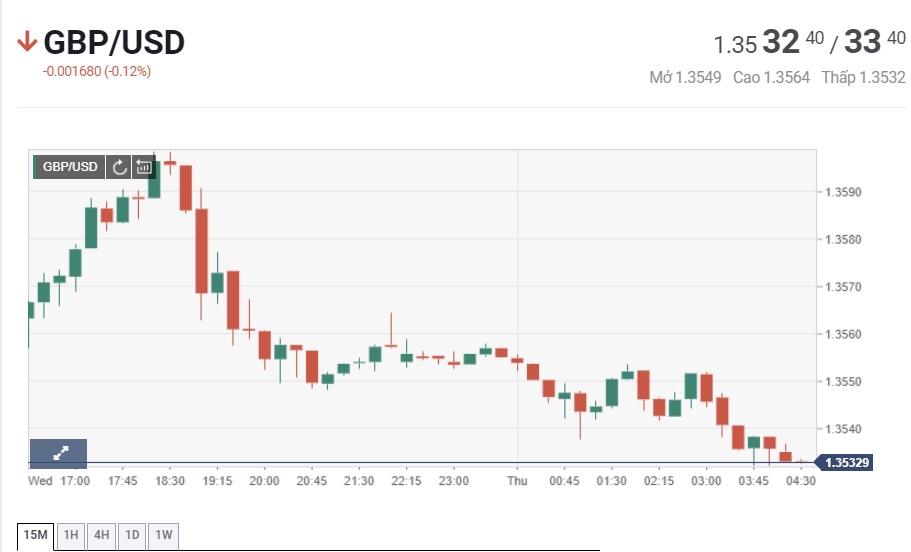What is the outlook for GBP in 2022?
GBP has been very steady for some years now. The question for 2022 is whether this stability will persist.

GBP has risen modestly (by 5%) in the past year despite the fact that the UK economy has not performed well compared to its peers.
In fact, since the plunge following the shock decision to leave the EU in the summer of 2016, the pound has traded in a very modest 9% range in narrow trade-weighted terms (using the BIS’s trade-weighted index). Even on a broader measure, which includes many of the larger emerging market currencies, GBP has stayed in a 10% trading range since Q3 2016.
GBP has risen modestly (by 5%) in the past year despite the fact that the UK economy has not performed well compared to its peers. Not only did the UK economy plunge by more than the US and euro zone in the heat of the coronavirus crisis last year, but the recovery has been modest so that the level of GDP in Q3 last year was still considerably further below its pre-Covid level than either the US or euro zone.
In addition, a cursory glance at the data shows that UK growth momentum was waning relative to the US and euro zone before the epidemic struck. Mr. Steve Barrow, Head of Standard Bank G10 Strategy said: “We feel that this has much to do with Brexit; both the damage to confidence following the referendum decision, and the further damage done once Brexit came into effect a year ago. None of this is too surprising. We, and many others have argued for some years that the Brexit decision would cost the economy; certainly, in the early phases, if not in the long haul. The fact that the pound has not fallen despite this probably owes much to the fact that a good deal of bad news about the implications of Brexit were priced into the pound very soon after the referendum result was known”.

In fact, the market probably over-reacted on the downside by pushing sterling down so far. There is also a second factor which has helped sterling to remain stable despite the poor economic backdrop. This relates to the perceived value of UK acquisitions by overseas entities. A combination of a low sterling value after the referendum, relatively cheap equity valuations in the UK, and perhaps optimism that, in the long haul, Brexit will bring big rewards to UK firms, has led to a surge in inward investment. Inward foreign direct investment (FDI) excluding reinvested earnings was already above the combined totals for 2019 and 2020 in the first three quarters of 2021. Foreign private equity has been a particularly voracious buyer of UK companies and these demands have helped keep the pound stable.
More recently, the BoE’s first rate hike has meant that the UK has stolen a march on other central banks, even the Fed, and could start to provide more support for sterling. In Mr. Steve Barrow’s view, the key questions for the pound this year are: will the economy catch-up with the recovery elsewhere, will foreign investors remain enamoured with UK companies and will the BoE stay out ahead of others with its rate hikes? Overall, he thinks the answer is “yes” on all three counts. But is this enough to lift sterling, or will these factors merely ensure that the pound can continue the trade-weighted stability that has characterised the post-referendum years? He believes it more likely that sterling can push on, albeit somewhat gingerly through 2022. “If we look at our sterling/dollar forecast, for instance, we currently have a call for 1.47 in a year’s time which is 10 cents above the Bloomberg median survey of 1.37. This being said, a lower dollar in the second half of the year rather dominates this forecast while sterling’s upside against other currencies, including the euro, should prove far more constrained. An additional caveat is that the UK will face significant challenges this year that could weigh on the pound. Included here are the likely surge in inflation in coming months, the damage to supply chains and export prospects from increased EU trade regulations starting this year and the potential for UK gas price increases to hit the economy hard should Russia encroach on Ukraine early in the year. So, while we’d label ourselves as more bullish than bearish for sterling this year the bulls may have to be ready to jump ship if one, or more, of these threats materialise in a significant way”, Mr. Steve Barrow said.








